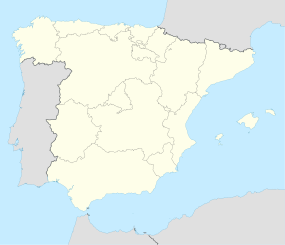Rusadir

Melilla la Vieja is built over Roman Rusadir
|
|
| Location | Spain |
|---|---|
| Region | Melilla |
| Coordinates | 35°17′38″N 2°55′59″W / 35.294°N 2.933°WCoordinates: 35°17′38″N 2°55′59″W / 35.294°N 2.933°W |
Rusadir (Latin: Rusadir or Russader, Ancient Greek: Ῥυσσάδειρον Rhyssadieron) was an ancient Romano-Berber city in Mauretania Tingitana. It was originally a Phoenician and later a Punic establishment called in Phoenician: Rus-Adir. According to the Antonine Itinerary, the town subsequently became a Roman colonia. It was located in present-day Melilla.
Rusadir one of the Berber nation's historical settlements in North Africa. It is mentioned by Ptolemy (IV, 1) and Pliny (V, 18) who call it "oppidum et portus", also by Mela (I, 33), under the corrupted form Rusicada and by the Itinerarium Antonini.
The Romans occupied Rusadir in the first century under Augustus and later opened a coin mint. Emperor Claudius created a Roman colony in 46 AD with the name Flavia.
In the third century Rusadir was fully Christian and enjoyed huge prosperity. Emperor Diocletian made it part of the Hispania province in 385 AD. Melilla was named "Flavia" during Roman times and united to Spain administratively in the third century
In the late fourth century, Rusadir served as the Roman port of commerce to the Mauro-Roman kingdom. The Vandals laid siege and conquered the city around 430 AD, but a few years later it was controlled by the Altava Berber kingdom. The Eastern Roman Empire of Justinian I under the general Belisarius conquered the city in the Vandalic War. By then it had fewer than 3,000 inhabitants after having suffered widespread destruction. The king of the Visigoths Sisebuto conquered Rusadir in 614 AD and reconstructed the destroyed city walls: the city become an episcopal see. The Byzantine empire after some years recovered the city, but it fell to the Arabs around 701 AD.
...
Wikipedia

